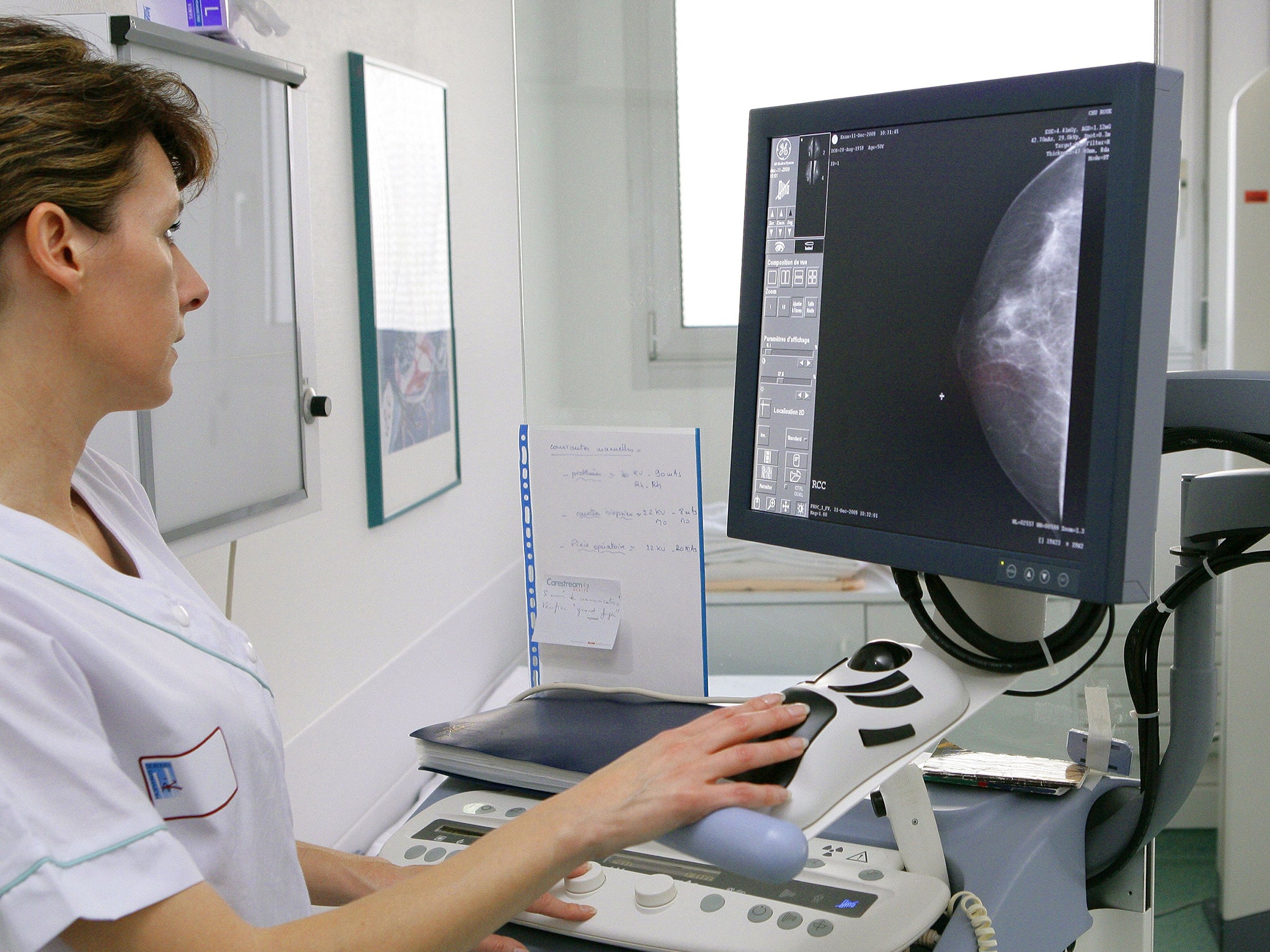Overnight thousands of women will be spared a difficult decision
Oncologists say Monday's clinics will see fewer women given chemotherapy, and suffer its heavy side effects, thanks to the results of a groundbreaking clinical trial


On Sunday, the world’s leading cancer specialists hailed the results of a huge clinical trial that will remove the uncertainty from one of the most difficult choices many women face.
A genetic test, OncotypeDX, has been helping doctors identify women whose breast cancer has a high or low risk of recurrence by assessing the tumour’s activity based on 21 genetic markers.
Women at low risk of their cancer spreading can proceed with milder hormone therapy, while women at higher risk should also have chemotherapy to kill off other cancer cells.
But the majority of patients with the most common form – affecting roughly 23,000 of the 55,000 cases in the UK each year – fall between those camps.
In these patients doctors have not had certainty about the benefits of chemotherapy in preventing cancer recurrence. What is more certain is that the effect of chemotherapeutic regimes can be harrowing, causing hair loss and nausea, and the risk of infertility in younger women.
These risks can take a toll on jobs, relationships and the everyday pain-free existence which is taken for granted until you fall ill.
There is also a smaller risk the toxic cocktail can cause nerve damage leaving patients with permanent pain in their hands and feet, or even bring on heart failure or leukaemia in later life.
But faced with the spectre of cancer’s return at an uncertain point in the future, it is natural that many women will see chemotherapy’s side effects as an acceptable price to eradicate the disease as early as possible.
From next week thousands more women in the UK and around the world will benefit from new assurance that they may not need to pay that price.
Sunday’s findings, from the nine year TailorX trial, which included more than 10,000 women with this type of breast cancer, found no difference in how long women remained disease free or survived overall when given hormone therapy alone or with chemotherapy in addition.
After its presentation at the American Society of Clinical Oncology’s annual meeting in Chicago, doctors said the results would have an immediate impact.
Dr Alistair Ring, consultant medical oncologist at the Royal Marsden NHS Hospital in London said chemotherapy was the treatment his patients “fear being suggested”.
“I, as an oncologist on Monday in clinic, will offer less chemotherapy that will not be of benefit to patients and that is very reassuring to know,” he said.
The findings are also timely in light of this type of personalised medicine’s place in the NHS.
The Oncotype DX test has been available on the NHS since 2013 for patients with this type of breast cancer. But its use is currently being reviewed, alongside other genetic tests, by the National Institute of Health and Care Excellence (NICE) as part of a regular update.
Draft guidance proposed by Nice suggests its use will be maintained. But a many of these tests and treatments on the NHS are made available more cheaply through special deals with the NHS – essentially a nationwide bulk-buy made possible by our single-provider health system – this strengthens the case for keeping access.
“I would be very, very keen that the Tailor X results are incorporated into that evaluation,” Dr Ring added. “This is a huge study. It’s exactly the sort of study that we need to make decisions.”
Difficult decisions run throughout medicine. For the thousands of women contemplating chemotherapy in a calendar crowded with important meetings and birthday parties this could remove one overnight.
Join our commenting forum
Join thought-provoking conversations, follow other Independent readers and see their replies
Comments
Bookmark popover
Removed from bookmarks